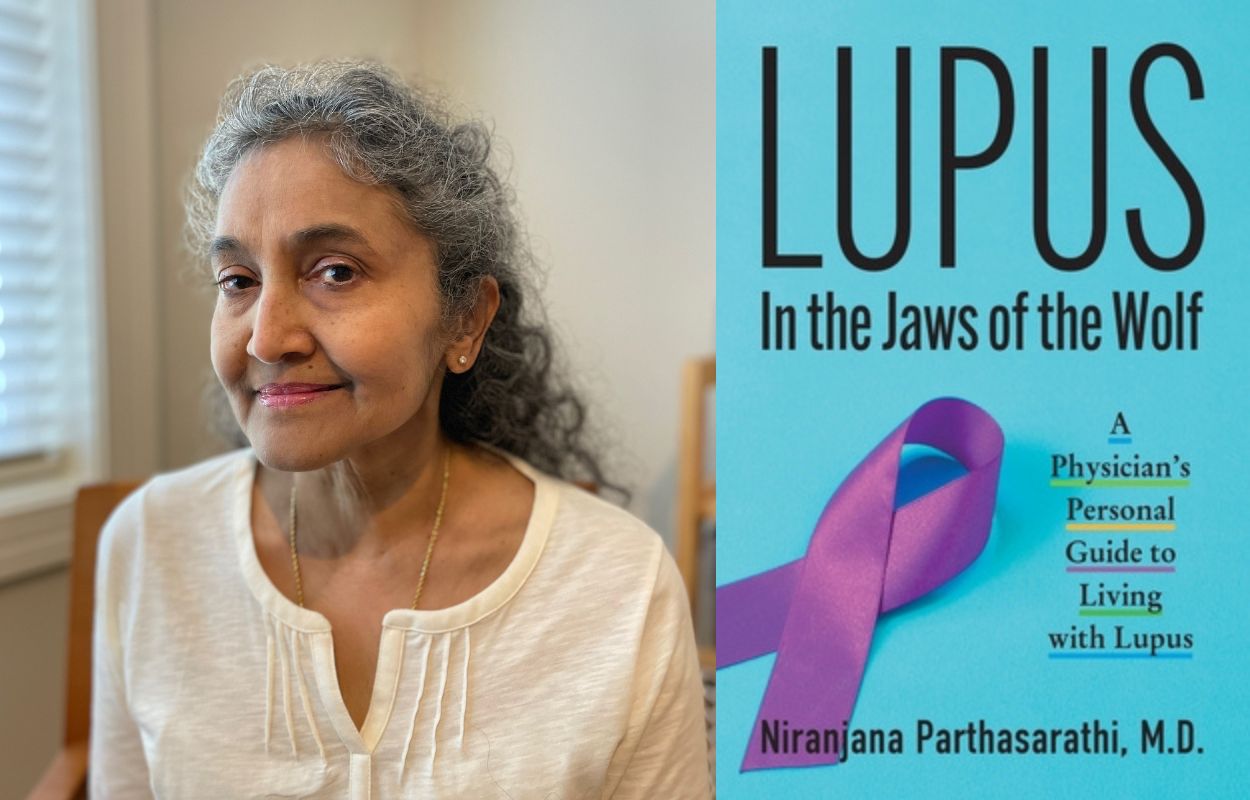Alumna’s new book tackles the ‘enigmatic’ disease of lupus
Class of 1988’s Niranjana Parthasarathi tells her story as both a patient of the disease – and a physician

Niranjana Parthasarathi, M'88, and her new book (Photo on left by Dan FitzSimmons)
This story was published in the spring 2023 issue of 12th & Marshall. You can find the current and past issues online.
Niranjana Parthasarathi, M'88, remembers learning about lupus in her second year of medical school.
“One of our professors lectured about it and talked about how it's just the most fascinating disease,” she says. “I remember thinking to myself how horrible it sounded.”
Not long after, at age 23, Parthasarathi first experienced the fatigue, joint pain and swelling that characterizes the disease. She was fortunate to be on the MCV Campus, she says, with access to expert rheumatologists. Lupus, which can attack any organ and cause a myriad of complications, is often misdiagnosed and occasionally dismissed by physicians.
That’s why, many years later, she’s telling her story. Published in January, “Lupus: In the Jaws of the Wolf” tackles the complex autoimmune disease that affects roughly 1.5 million Americans. She writes from the perspective of both a patient and a doctor.
“Lupus can drastically affect one’s relationships, work and sense of identity,” Parthasarathi says. “My book will hopefully benefit patients in better managing their illness with lifestyle measures – as well as coping with the impact on all facets of their lives, including psychological aspects.”
Parthasarathi went on to residency and a successful career as a clinician and professor of internal medicine at the University of Cincinnati Medical Center, recognized as a "best doctor" by her peers in Cincy magazine each of her last eight years in practice there.
But the chronic disease followed her. At age 50, Parthasarathi experienced a severe flare up of lupus that led to multi-organ complications of both disease and treatment. She can’t work full-time anymore but practices part-time general adult practice via telemedicine.
An invisible illness
The book’s primary audience is her fellow lupus patients. It’s half memoir, based on years of journaling, and half a research-driven guide to navigating the disease, from the perspective of a physician. She wants to empower readers to advocate for their treatment within the health care system – and proactively care for themselves through lifestyle changes, like exercise and specialized diets.
“There have been times when I’ve had unusual complications,” she says. “And I have enough knowledge to question some of the treatment recommendations made – and be aware that they're not necessarily research-driven.”
That’s why she hopes physicians will read the book, too. It will help them recognize and connect with lupus patients, Parthasarathi says, as well as patients with other chronic, autoimmune illnesses, which are on the rise.
“Invisible illnesses,” she calls them, as symptoms can be vague and varied.
“With an enigmatic disease such as lupus, or other autoimmune diseases, or long COVID-19 patients, there's definitely sensitivity and knowledge to gain,” Parthasarathi says.
Proceeds from the book’s sale will go to the Lupus Foundation of America and Lupus Research Alliance.